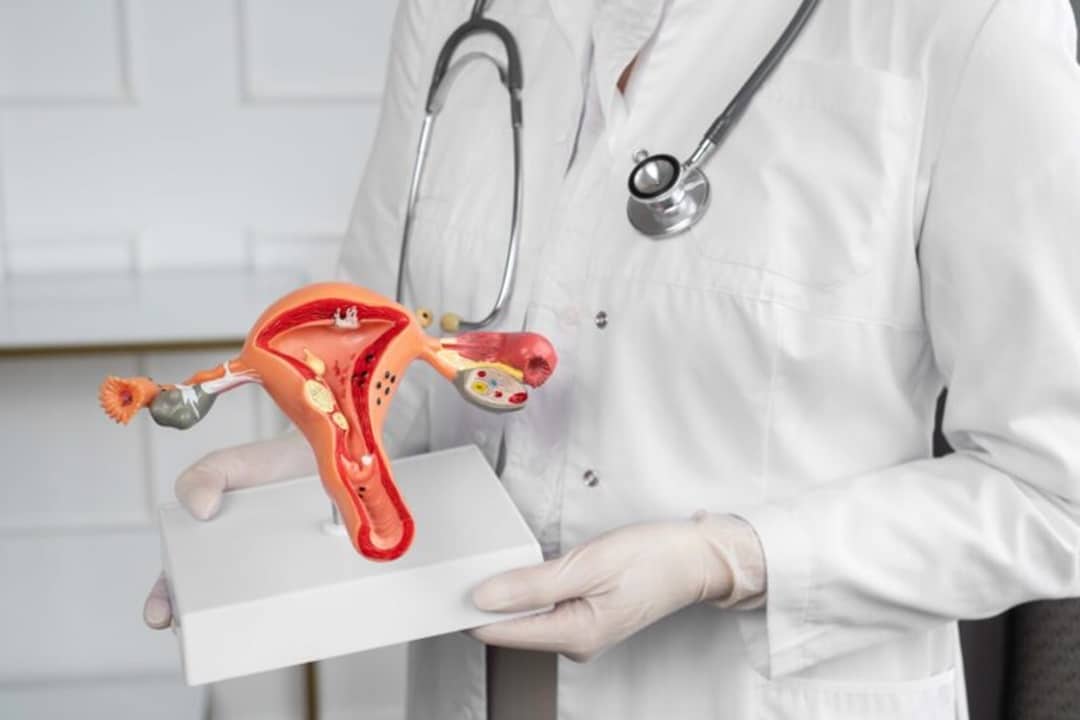Gynecological Health for Teens: Guidance from Vijayawada Specialists
Catagory: Gynaecology & Obstetricts Author: Dr Rekha Prabhu

Navigating the teenage years can be challenging, especially when it comes to understanding gynecological health. It’s a crucial time for establishing healthy habits and addressing any concerns early. Vijayawada’s top specialists provide essential guidance to ensure that teens receive the care and information they need.
1. Understanding Puberty
a. Physical Changes
– Puberty brings about significant physical changes, including breast development, the onset of menstruation, and growth spurts. Understanding these changes helps teens know what to expect and when to seek help if something seems amiss.
b. Emotional Changes
– Hormonal fluctuations can lead to mood swings and emotional changes. Open communication with trusted adults and healthcare providers can help manage these shifts.
2. The Importance of Menstrual Health
a. Regular Cycles
– Establishing a regular menstrual cycle can take time. Teens should track their periods and note any irregularities, such as very heavy bleeding or cycles longer than 35 days.
b. Menstrual Hygiene
– Proper menstrual hygiene is essential. This includes using sanitary pads, tampons, or menstrual cups and changing them regularly to prevent infections.
3. Common Menstrual Disorders
a. Dysmenorrhea (Painful Periods)
– Painful periods are common but should not be debilitating. If over-the-counter pain relievers don’t help, it’s important to consult a specialist.
b. Menorrhagia (Heavy Menstrual Bleeding)
– Excessive bleeding can indicate underlying issues like hormonal imbalances or uterine abnormalities. Early consultation can prevent anemia and other complications.
4. Understanding Reproductive Health
a. Anatomy and Function
– Teens should learn about their reproductive anatomy and how it functions. This knowledge is empowering and aids in recognizing when something isn’t right.
b. Sexual Health Education
– Comprehensive sex education helps teens make informed decisions. It covers contraception, preventing sexually transmitted infections (STIs), and consent.
5. Addressing Common Gynecological Concerns
a. Vaginal Infections
– Yeast infections and bacterial vaginosis are common and treatable. Symptoms like itching, unusual discharge, and odor should be discussed with a healthcare provider.
b. Ovarian Cysts
– Many ovarian cysts are harmless and resolve on their own, but persistent pain or large cysts require medical evaluation.
6. Importance of Regular Gynecological Check-Ups
a. First Visit
– The first gynecological visit is recommended between ages 13 and 15. This visit focuses on education and establishing a relationship with the gynecologist.
b. Annual Exams
– Regular check-ups are vital for monitoring health, addressing concerns, and discussing issues like HPV vaccination and menstrual problems.
7. HPV Vaccination
a. Importance
– The HPV vaccine protects against the human papillomavirus, which can cause cervical cancer and genital warts. It’s most effective when given before exposure to the virus.
b. Schedule
– The vaccine is typically administered in two doses for those starting before age 15 and three doses for those starting at age 15 or older.
8. Mental Health and Gynecological Health
a. Connection
– Mental health can impact gynecological health and vice versa. Stress and anxiety can affect menstrual cycles, and menstrual disorders can impact mental well-being.
b. Support
– Mental health support, including counseling, can help teens manage stress and emotional changes related to their gynecological health.
9. Nutritional Considerations
a. Balanced Diet
– A balanced diet rich in iron, calcium, and vitamins supports overall health and helps manage menstrual symptoms.
b. Eating Disorders
– Awareness of eating disorders is crucial as they can significantly impact menstrual health. Early intervention and support are essential.
10. Encouraging Open Communication
a. With Parents and Guardians
– Open communication with parents or guardians about gynecological health fosters a supportive environment for addressing concerns.
b. With Healthcare Providers
– Teens should feel comfortable discussing any health concerns with their gynecologist. Confidentiality is assured to encourage honest communication.
Conclusion
Gynecological health is a vital aspect of a teenager’s overall well-being. Early education, regular check-ups, and open communication with healthcare providers are key to managing and maintaining reproductive health. Vijayawada’s specialists, like Dr. Rekha Prabhu, provide comprehensive care and guidance to ensure teens navigate these formative years with confidence and health.
Recent Post
-
Common Gynecological Issues and When to See a Specialist in Vijayawada: Insights
-
Gynecological Health for Teens: Expert Guidance from Vijayawada Specialists
-
Embracing Women's Wellness: The Holistic Path to Reproductive Health
-
Unlocking Gynecological Health: Expert Insights by Dr. Rekha Prabhu
-
Beyond Birth: Navigating Women's Health Throughout Every Stage of Life
-
Yoga for Women’s During Pregnancy
-
Genetic Testing in Gynecological Healthcare
-
Exercises for Pelvic Floor Health
-
Unveiling the Vital Link: Sleep and Women's Health | Dr Rekha Prabhu
-
Exploring the Benefits of Meditation and Yoga for Women's Health
-
Understanding and Managing Common Pregnancy Complications
-
Endometriosis: Diagnosis, Treatment, and Lifestyle Management
-
The Connection Between Diabetes and Pregnancy
-
What You Need to Know About Uterine Fibroids
-
The Connection Between Menopause and Osteoporosis
-
The Importance of Regular Gynecological Checkups
-
The Benefits of Breastfeeding for Mother and Baby
-
Essential Tips for a Healthy Pregnancy: Diet, Exercise, and Expert Guidance
-
The Role of Genetics in Gynecology and Obstetrics
-
The Risks and Benefits of Hormone Replacement Therapy
